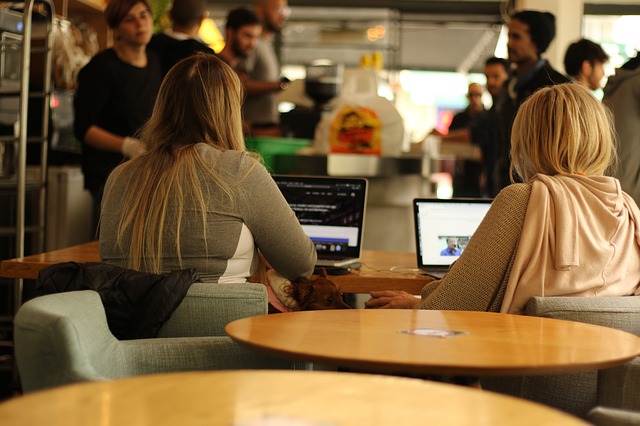Not all WiFi is created equal. If you are a remote worker, business traveler, or a student who travels internationally, you know the difference between good and bad Wifi connections. Some signals are weak. Some are hard to connect to. Public WiFi networks are even worse; they are slow, unreliable, and simply unsafe.
No public WiFi is as secure as the WiFi you can connect to at your home or office. Unless it’s a known network with relatively few users, there is a good possibility that someone may be using the system in a criminal manner.
READ ALSO: How to optimize your Wifi connection from home
In today’s modern age, especially 2020, we almost always need to be online! To keep your information safe when traveling anywhere off your home WiFi, keep these best practices in mind:
Know the Potential Dangers of WiFi
You can’t keep your device secure if you don’t know what the worst-case scenarios are. All of these scenarios can occur over an unsecured WiFi connection:
Interception: Known as “man-in-the-middle attacks,” this scam occurs when a hacker is able to access your data by installing a skimming device at the connection point. This frequently occurs at public USB charging ports.
Rogue Networks: You may think you’re logging on to a café’s WiFi, but you’re really letting in a Trojan horse. It’s surprisingly easy for someone to disguise their own network as another publicly or privately owned network for the purpose of information theft or malware installation.
Malware Distribution: If the Wi-Fi network is unsecured, it’s possible for hackers to infect your device with malware. Viruses can be programmed to attack your system. A worm, another type of virus spread through a public system, can also shut down your operation.
Eavesdropping: Cybercriminals can use software to monitor your activity through a public WiFi connection. They’ll be able to see and record everything you’re working on.
Stealing Passwords: If you log on to a website or app using a username and password in a public place, a hacker might be recording your keystrokes. If that access point is for your finances or proprietary business, the consequences could be severe.
Is Public WiFi Safe? Spotting the Dangers
While it’s best to presume that connecting to any public WiFi is risky, there are some tell-tale signs for networks that you should definitely stay away from.
For example, vague names like “Free WiFi” should always raise a red flag. Often, coffee shops and other private businesses offer internet connection as an added incentive to visit. They usually have a specific name with a password you can get by asking an employee.
These networks are more secure than true public connections in parks and public areas, but you should still use common sense. If logging on is as easy as ordering a cup of coffee, it’s basically an open platform for anyone to use.
The fewer public connections you have, the safer your system. WiFi services that operate through your phone company, for example, usually do not require additional registration. Know what to expect just in case someone creates a mirroring network.
Be especially careful with free connections that require you to enter a lot of information through a web browser before logging on. If you must provide an email address, consider having an alternative one specifically for this purpose.
Best Practices for Safe Public WiFi
When you’re traveling internationally, sometimes you have no other option but to use what’s available. If you’re in an airport or on the road, you still have to conduct business and stay in contact with friends and family. There are still ways to stay safe. Be sure to:
Turn Off Auto-Connect: It might seem like a good idea to have your phone connected to WiFi whenever possible, but auto-connect leaves you vulnerable to hackers. The same goes for Bluetooth. Turn off your auto-discover when it’s not in use.
Use a Mobile VPN: Short for virtual private network, a VPN is a connection method that is used to hide an IP address so you can browse anonymously. This solution not only provides added security, but can also serve as a work-around in case a network blocks certain websites. Keep in mind that not all VPNs are the same. Consider a trusted option like Solis VPN to remain private and stay secure.
Limit File Sharing: Some systems, like “AirDrop” on iOS, have the capability for seamless file sharing. If you are discoverable, someone could steal your files in seconds.
Consider All Public Lines Open: If you are connected to an unknown, unsecure system, presume that everyone is watching. Never log on to financial sites or access files you wouldn’t want to be seen. Remember, it’s surprisingly easy for someone with bad intentions to use software that can allow them to see your screen and record your keystrokes.
Get Your Own WiFi: Of course, the most secure connection is your own. It’s better to avoid public WiFi completely and instead use your phone’s hotspot or your own mobile WiFi device. If you stay self-contained, you are giving criminals fewer opportunities to hack your device and steal your information
Stay Safe from Cyber Attacks
With remote work on the rise, hackers have more opportunities than ever. This doesn’t mean that you need to be a victim. Following these best practices for WiFi use will minimize your risk and vulnerability.
If you have been hacked, there are some steps you should take immediately. First, change all your passwords immediately to limit damage. It’s a good idea to set up recovery options for your different accounts, just in case you have trouble accessing them. Always use complex passwords that are hard to guess.
After you’ve reset your system, verify all of your accounts. Check shipping addresses, third-party app permissions on social media, and all of your files. Look in the trash and spam folders of your email to make sure hackers didn’t sign up for services or accounts with your information. You’ll also want to alert your contact list to what happened so they are not fooled by unauthorized emails from your account.
However, if you follow these best practices carefully, chances are you’ll never get hacked in the first place.
Story from Skyroam.




